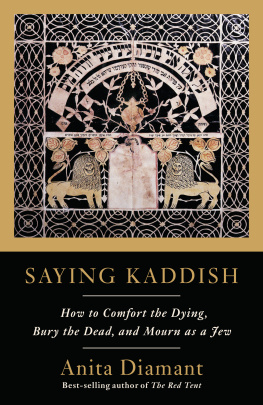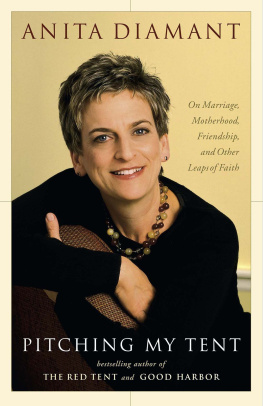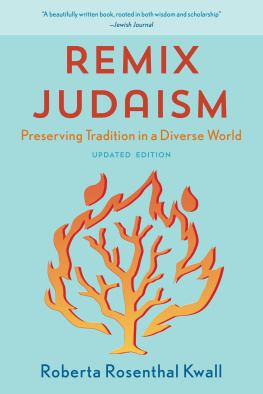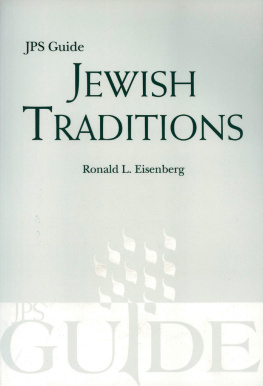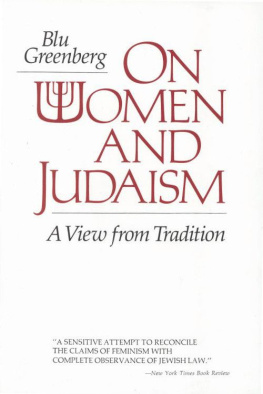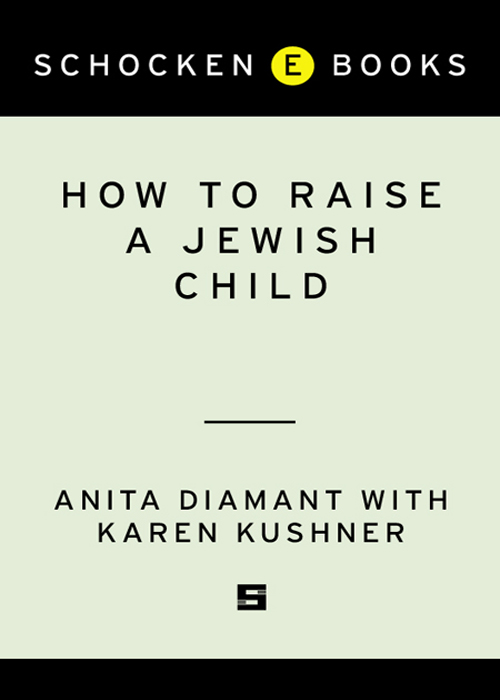
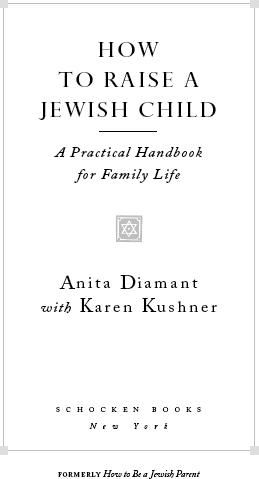

Contents
For our children,
who continue to teach us the important stuff
Emilia Ball Diamant
Noa Rachael Kushner
Zachary Kushner
Lev Yakov Kushner

Acknowledgments
A book about parenting owes everything to parentsespecially our own mothers and fathers, who did everything they could for us.
This book also owes an enormous debt to our partners in parenting and life, Jim Ball and Larry Kushner, whose wisdom, humor, love, and tech support are a wonder.
Thanks to all of these parents, teachers, rabbis, cantors, and friends for their time and expertise. We are especially indebted to the generous folks who read and commented on draft chapters when they might have been working or playing or sleeping: Steven Chervin, Barbara Davis, Rabbi Joshua Elkin, Merle Feld, Sheila Goldberg, Becca Hornstein, Carolyn Keller, Dr. Sam Kunin, Rabbi Daniel Lehmann, Cantor Riki Lippitz, Rabbi Daniel J. Margolis, Billy Mencow, Edward Myers, Rabbi Simcha Pearl, Arthur Samuelson, Amy Sales, Rabbi John Schechter, Sara Rubinow Simon, Rabbi Liza Stern, Sallie Randolph, Jennifer Turvey, Serene Victor, Rabbi David Wolfman, Lorel Zar-Kessler, Arnold Zar-Kessler.
Rabbi Barbara Penzner has been a sounding board, source, hand-holder, and thoughtful commentator on every last chapter for all of Anitas books. Todah rabah, Barbara.
For this new edition, updated and renamed to welcome all parents who are raising Jewish children, we would like to acknowledge Dr. Paula Brody, Rabbi Michelle Robinson, and Helene Tuchman for their assistance. Thanks also to Altie Karper and Janice Goldklang at Schocken Books for their support.

Preface
How to Raise a Jewish Child is a book of strategies and tools for the greatest adventure life offers. But even more than that, How to Raise a Jewish Child is a celebration of Jewish life.
Dire statistics about the demise of the Jewish people (sometimes discussed under the code word continuity) tend to make discussions of Jewish parenting seem like a last-ditch effort to preserve an endangered way of life, a hedge against assimilation and intermarriage. For us, Jewish parenting is not about building a wall to keep your children from abandoning Judaism; it is about raising healthy, joyful human beings within our rich, diverse, life-giving tradition. Jewish parenting is about giving your children a gift that will help them become the wisest, strongest, happiest people they can be.
The ideas and suggestions in these pages are offered as means to serve the wishes, dreams, hopes, and prayers you hold for the lives entrusted to you during the all-too-brief span of childhood. These are years of countless miracles. First smile, first tooth, first step, first book, first date. Enjoy them all.
Anita Diamant
Karen Kushner

Introduction
Parenting is a wholly human practice, and a holy one. Raising children to be adults capable of loving and learning is not only the way we get to play God, it is also how many of us find God and connect with what is most sacred in life.
Judaism is a pathway filled with religious, cultural, and psycho-spiritual strategies and tools, values and celebrations that can help you enjoy and excel at this, the greatest adventure that life has to offer. The whole point of setting your childrens feet on this pathway is to provide them with a beautiful birthright that can help them become the wisest, strongest, happiest people they can be.
The wisdom of Jewish tradition and the vitality of Jewish community are accessible and available to you. And we do mean youno prior experience necessary.
All parents are amateurs. No matter how many baby books you read or parenting classes you take, nothing can truly prepare us for the pleasures and pains of being a mom or dad. And even once you become a mom or dad, every baby has new lessons to teach, so that the second or third (or fifth) child is bound to confound your expertise and expectations.
The same holds true for raising Jewish children. Whether you attended Hebrew school for twelve years or went to church every Sunday, raising Jewish children makes amateurs of everyone. Whatever your background, you can raise happy, healthy, well-adjusted Jewish kids, but you cant do it entirely within the confines of your own familyno matter how loving or committed.
The proverbial village you need to raise your Jewish children is populated not only by your nuclear and extended family, but also by the staff of your Jewish preschool, the other parents in your synagogue (in addition to the rabbi and cantor and educators who work there), the counselors at your kids Jewish summer camps, Israeli tour guides, librarians, Web masters, andwriters of books.
How to Raise a Jewish Child is a practical guidebook for exploring the waywhich is to say your wayto raise Jewish children with integrity and joy.
And joy is what its all about. Joy is the bottom line, the process and the project and the prize of raising Jewish children.
The importance of joyful parenting is rooted in Jewish tradition, beginning with be fruitful and multiply, the first obligation, or mitzvah, mentioned in the Torah. Childlessness is treated as a tragedy in the Hebrew Bible, in part because raising the next generation is viewed as the most important way that human beings participate in the mysterious, elemental joy of creation itself. The Talmud says, With every child the world begins anew.
There is no mystery to raising happy, healthy Jewish childrennot even in our global, wired, mass-culture world. It all depends on the choices you make, day to day, week to week, year to year.
Parents make countless decisions for their children. Does she need to wear a sweater? What should we hang on the nursery walls? Is this a safe neighborhood for children? What kind of preschool would be best for him?
Every choice a parent makeseven a sweater-size oneis a model to young eyes. Every decision is a life lesson. For parents raising Jewish children, even the little ones can impart Jewish content and joy.
How to Raise a Jewish Child assists you in turning big and small parenting choices into opportunities for expressing and imparting Jewish values and traditions.
In these pages, youll find answers to straightforward questions: Where do I find a Hebrew name for my baby? How can I make the Passover seder interesting to my four-year-old? What are the blessings for the Sabbath table? How can we make this bar mitzvah meaningful?
Youll also find discussions about the long-term implications of choices you make when children are little: why choosing a Jewish preschool or summer camp is crucial; how sending a child to a Jewish day school can have an impact on the whole familys religious observance.
How to Raise a Jewish Child also provides guidance for giving growing children age-appropriate choices: What do I tell my three-year-old who feels cheated out of Christmas? How do we negotiate plans for a bat mitzvah with an emotionally erratic thirteen-year-old? What do I do when my teenager announces she wants to keep kosher?
Next page

